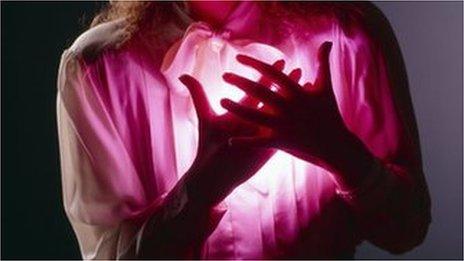'I gave birth two weeks after a heart attack'
- Published
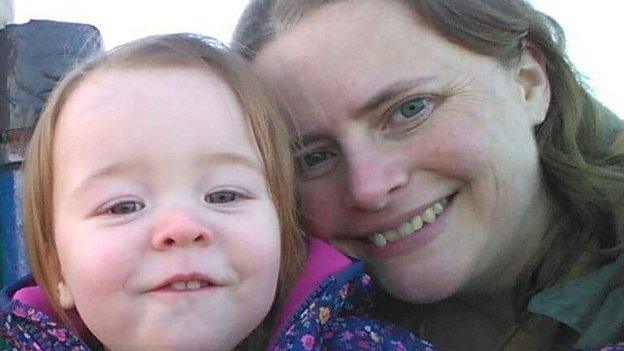
Nicki Owen and her daughter
Hundreds of women have been affected by a rare, under-diagnosed condition that causes heart attacks in otherwise young, healthy people. Here, two of them discuss their experiences.

Nicki Owen gave birth two weeks after suffering a heart attack.
She began having severe chest pains while she was 29 weeks into her second pregnancy.
"I'd been in and out of hospital during my pregnancy," the 37-year-old music teacher from Hull told the BBC's Victoria Derbyshire programme.
"But I knew this was something bad."
After ringing 999, she underwent an electrocardiogram (ECG) test, which showed something was abnormal with her heart.
However, even then, the paramedics said she was not having a heart attack, telling her she was simply having a panic attack.
"They didn't rush me in and when I eventually got to hospital I was forced to play an impossible waiting game," she said.
"They told me it couldn't be my heart because of my age and that I was pretty healthy. When the pain became unbearable the nurses gave me a paracetamol as they were convinced there wasn't anything seriously wrong."
'Incredibly lucky'
In fact, Nicki had suffered a Spontaneous Coronary Artery Dissection (SCAD), a rare and often undiagnosed condition, which mainly affects women - frequently during or soon after pregnancy.
It occurs when there is a sudden tear in one of the coronary arteries, blocking the flow of blood to the heart.
One of Nicki's arteries was found to be 95% blocked.
She was kept in hospital while the doctors decided what to do with her and her baby. However, two weeks later, 31 weeks into her pregnancy, her daughter Erin was born.
After the birth, Nicki started suffering further chest pains and was rushed to another hospital for treatment, leaving her newborn daughter behind.
Two years on, she remains reliant on eight pills a day and avoids any strenuous exercise.
"When you look at me I am young and slim and I don't look like a typical heart attack patient," she says.
However, she is one of an unknown number of people - overwhelmingly young, healthy women - who have suffered heart attacks.

What is SCAD?
Spontaneous Coronary Artery Dissection (SCAD) is an under-diagnosed heart condition
It affects mainly women, occasionally during or soon after pregnancy
Menopause, extreme stress and exercise have also been associated with it
During an attack, a sudden tear or a bruise develops in one of the coronary arteries blocking the blood follow
It can cause death, heart failure, cardiac arrest and require heart bypass surgery

Kate Alderton suffered her heart attack at the age of 30, the day after taking part in a 10km run.
A physically fit and keen runner who was averaging about 20 miles on the road every week, she began having intense chest pains while eating breakfast.
The paramedics initially thought she too was having a panic attack. However, she had also suffered a SCAD.
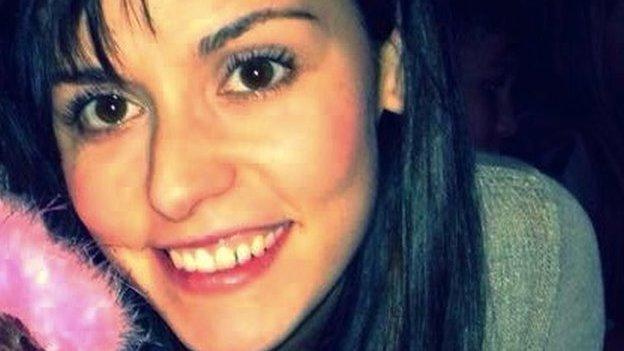
Kate Alderton suffered her heart attack at the age of 30
"No one was able to tell me whether I would recover and whether I would see my children's next birthdays," the mother-of-two said.
"It was the most frightening experience of my life and I was shell-shocked by it all."
She was eventually seen by an expert cardiologist.
Young, fit, healthy
"I am extremely lucky to have seen a doctor who knew about the condition, as it is not very well known at all.
"As I was so young, fit and also a dietician - so careful with what I eat - no-one would have known that I had actually experienced this."
Kate has now recovered and is back running. However, she has been advised against having any more children.
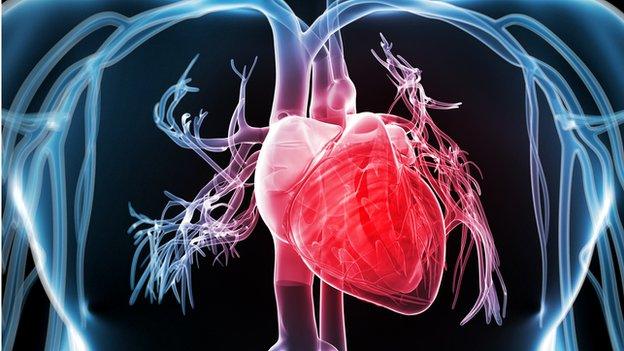
Health experts still do not know why SCADs happen, or if they are preventable.
Dr David Adlam, from the Leicester Cardiovascular Biomedical Research Unit, says they are different to a common heart attack and are therefore much harder to diagnose.
Coronary heart disease - the leading cause of heart attacks - is caused by coronary arteries becoming clogged with cholesterol.
However, a SCAD is caused by a sudden tear to an artery.
Dr Adlam says it is hard to know how many people a year die from SCAD, as it is almost impossible to diagnose after death.
However, he said research suggested nine in 10 cases involved women, while about 10% of cases affected women who were either pregnant or had recently given birth.
Dr Adlam said there were about 450 recovering patients attached to his hospital, including about 400 from the UK.
Quicker diagnosis
He said SCADs usually affected "young, fit people with no history of heart disease", meaning symptoms were often dismissed as anxiety, panic attacks, indigestion and other conditions.
"It's important that a diagnosis of SCAD is not delayed, which is why we want to get people talking about the condition. The sooner a diagnosis is made, the better the outcome is likely to be," he added.
Meanwhile, Nicki says it is time more health professionals knew the symptoms of SCAD.
"There is a survivors' group I am a member of and the profile of us all is that we are young and slim," she says.
"I think they need to look past the initial appearance of these women because they need to realise there is something seriously wrong."
Watch the Victoria Derbyshire programme on weekdays between 09:00 and 11:00 on BBC Two and the BBC News Channel.
- Published30 August 2016
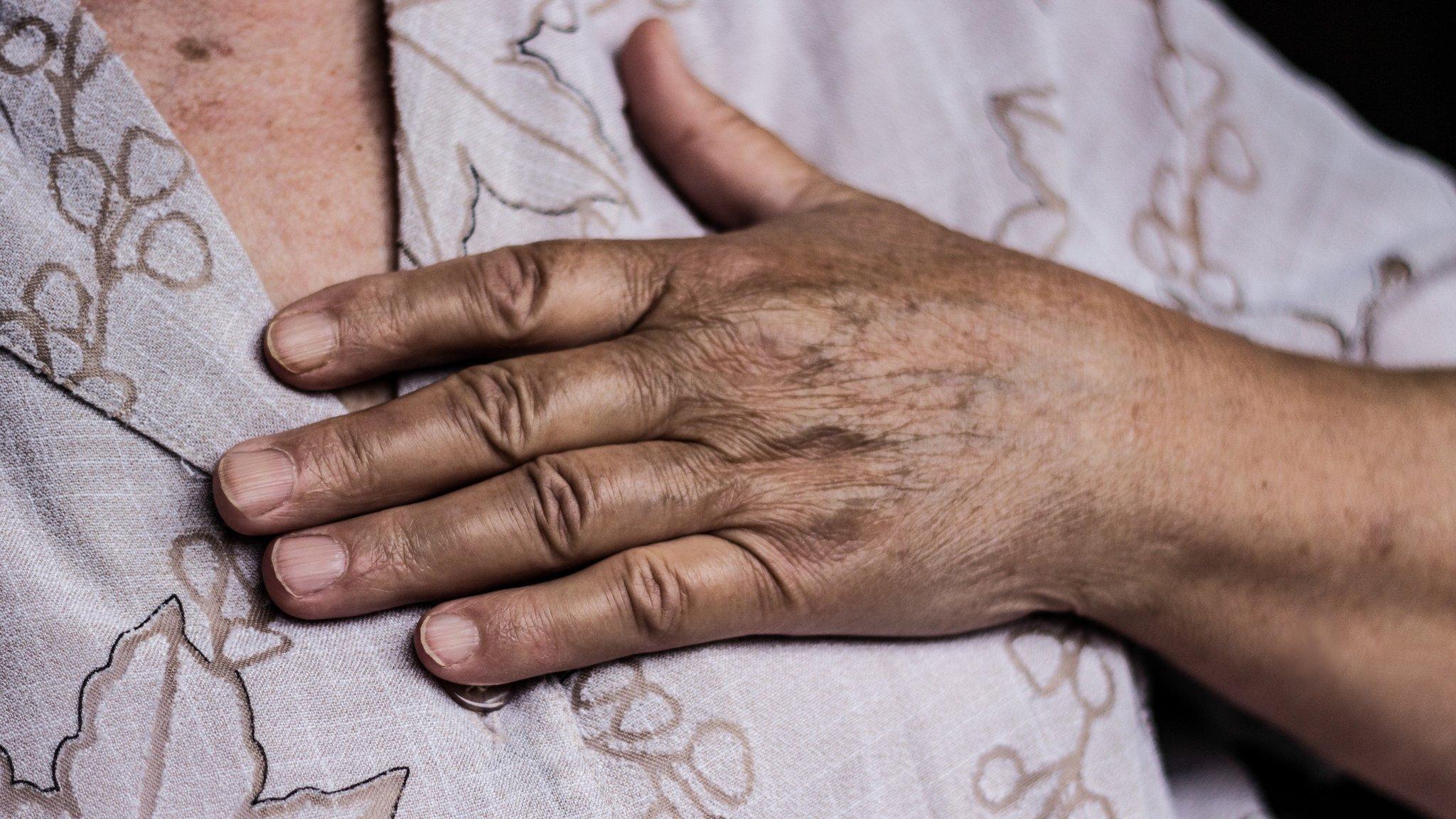
- Published8 June 2016
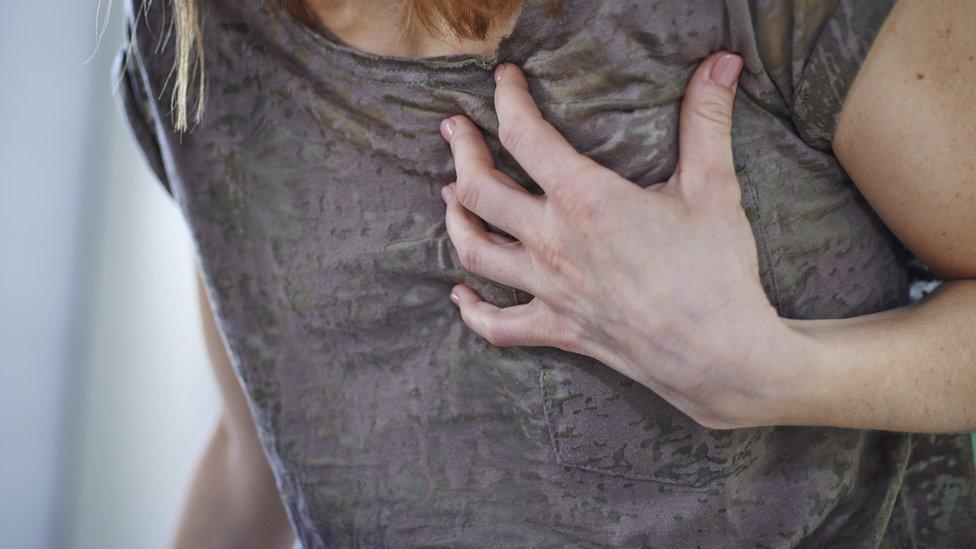
- Published9 March 2014
